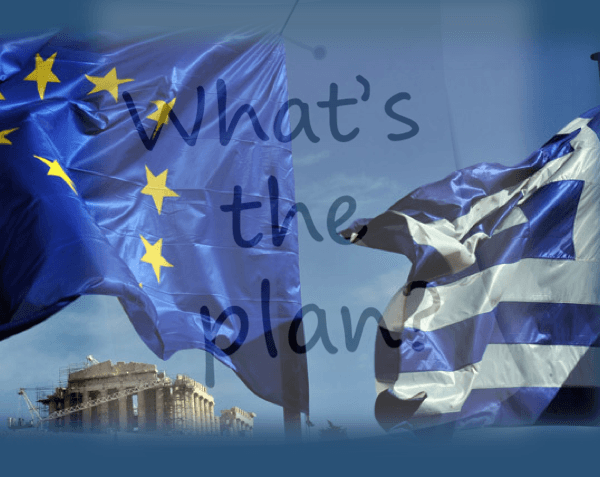The EUR/USD edged lower on Thursday after European Central Bank President Mario Draghi said it would be difficult for Europe to prevent a Grexit scenario from unfolding, as world markets awaited a new bailout proposal from Athens.
It will be “really difficult” to end Greece’s debt crisis and keep it in the euro, ECB President Mario Draghi was quoted on Thursday by Italian daily Il Sole 24 Ore. Draghi was also pessimistic about the prospect of Russia coming to the rescue.
“.. they don’t have money themselves,” Draghi said in reference to Russia, which said earlier this week Athens could get new financing from the New Development Bank operated by the BRICS countries – Brazil, Russia, India, China and South Africa. According to Russian finance minister Sergey Storchak, Greece would be eligible for financing only by making a political decision to join the Bank.
European Union finance ministers will meet on Sunday to discuss Greece’s financial crisis. According to analysts, this could be the final attempt to reach an agreement before a Grexit scenario begins to unfold. The leftist government of Greek Prime Minister Alexis Tsipras formally applied for a three-year loan from the European Stability Mechanism on Wednesday and has until end of day Thursday to present detailed reforms.
According to International Monetary Fund head Christine Lagarde, any new proposal from Greece would require a sustainable restructuring plan.
The EUR/USD was back on the defensive on Thursday after showing upside earlier in the trading session. The EUR/USD climbed to a daily high of 1.1118 after closing at 1.1072 on Wednesday. The pair was trading near daily lows ahead of the New York session, having declined 0.3% to 1.1038. The EUR/USD is likely to face initial support at 1.0974, the low from July 8, followed by 1.0916, the low from July 7. On the upside, initial resistance is likely found at 1.1118, the daily high, followed by 1.1171, the high from July 1.
In economic data, Germany’s trade surplus widened in May, as exports rose unexpectedly. Germany’s trade surplus increased to €22.8 billion in May from €21.5 billion in April, the Federal Statistics Office reported on Thursday.
Exports climbed 1.7% after rising 1.6% in April. Economists forecast exports to drop 0.8 percent. Meanwhile, imports rebounded only 0.4% after dropping 0.8% in April. Economists had expected imports to rise 0.9%.
Tradersdna is a leading digital and social media platform for traders and investors. Tradersdna offers premiere resources for trading and investing education, digital resources for personal finance, market analysis and free trading guides. More about TradersDNA Features: What Does It Take to Become an Aggressive Trader? | Everything You Need to Know About White Label Trading Software | Advantages of Automated Forex Trading










































